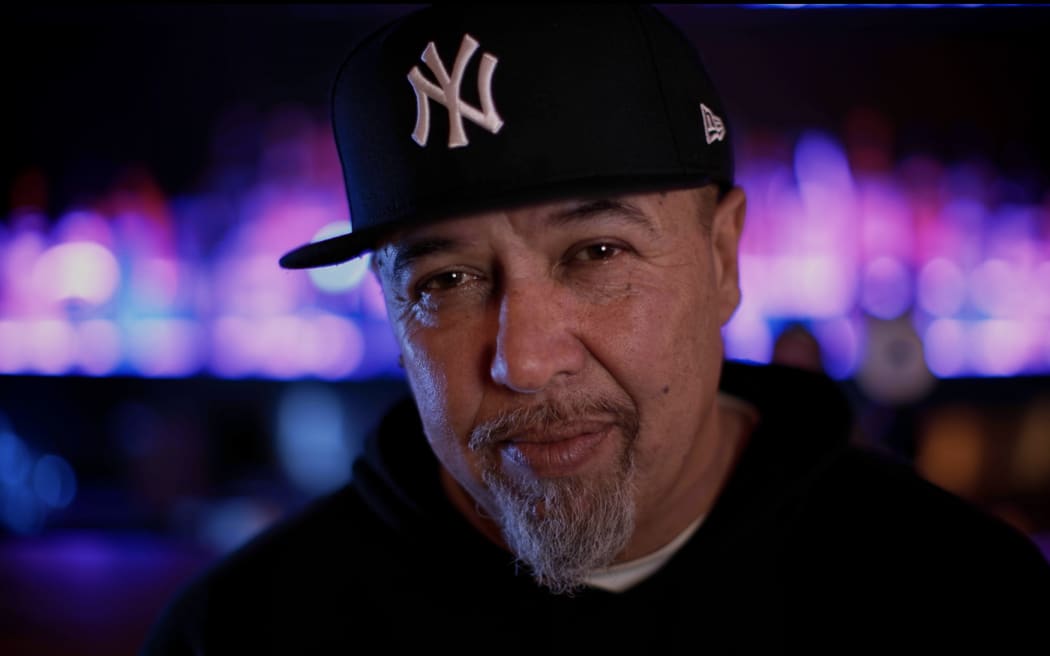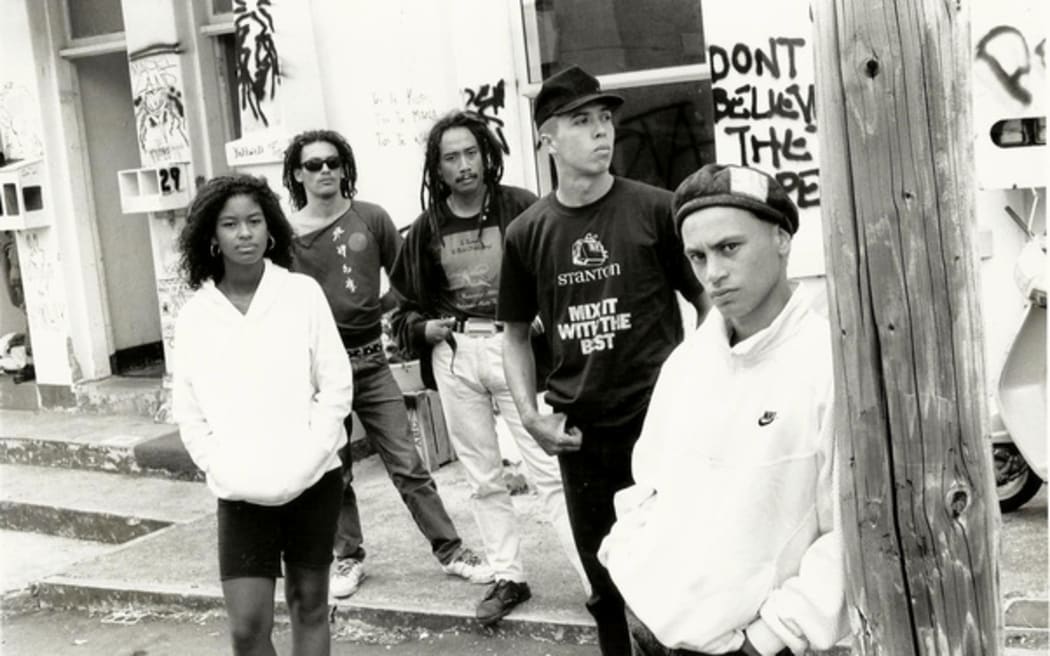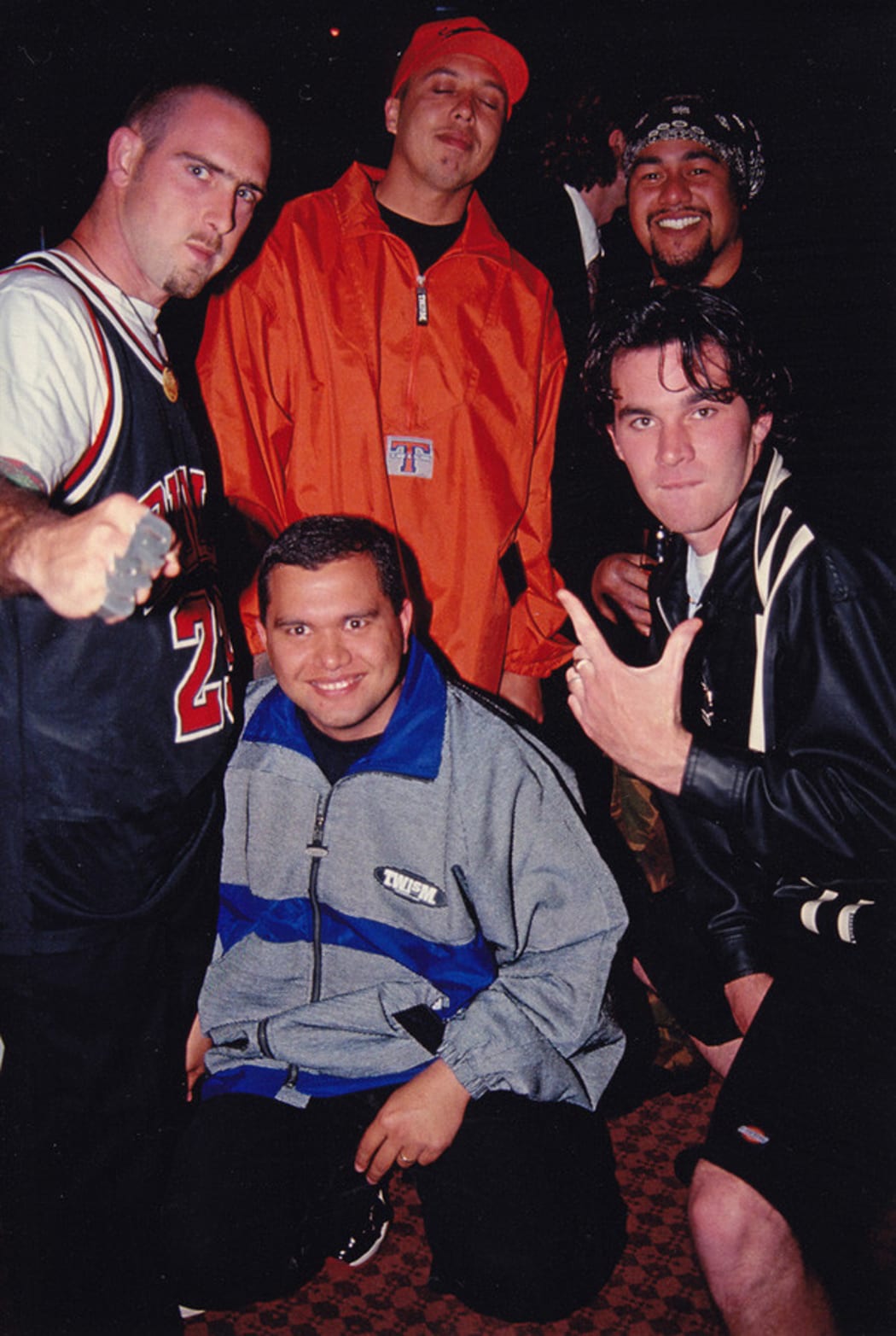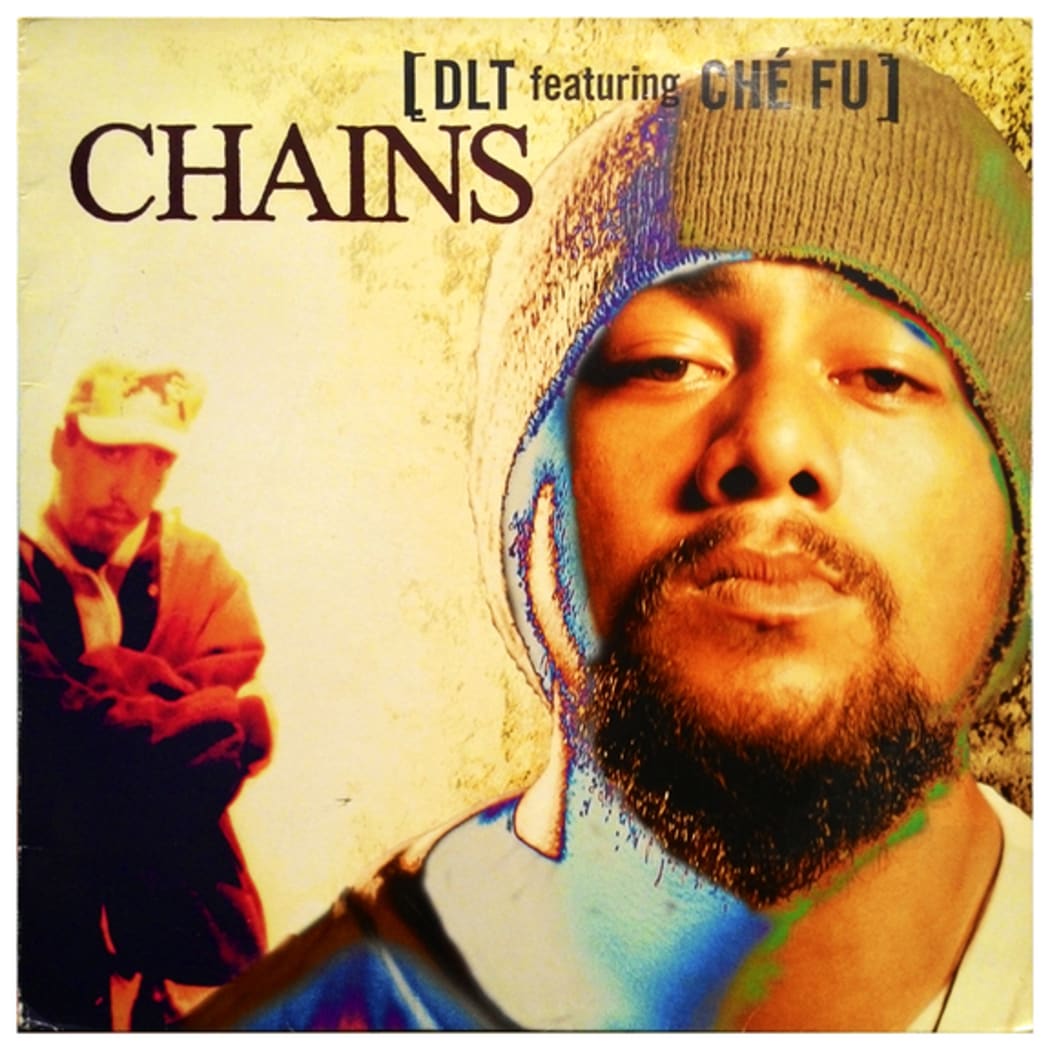
Hip hop producer DLT, aka Darryl Thomson. Photo: The Down Low Concept / RNZ
NZ Hip Hop Stand Up Series 3 launched this week, continuing the journey of delving deeper into the rich, diverse landscape of Aotearoa's hip-hop history.
Season three celebrates the 1989 hip hop hit 'She's a Mod/Mod Rap' by Double J and Twice the T; the classic 'Chains' by DLT and Che Fu, as well as tracks by Nesian Mystik, Ladi 6, Lost Tribe Melodownz, Fast Crew & Melodownz.
And much like the first and second series, key figures of Aotearoa's hip hop scene, lend their expertise and share memories of how these tracks came together.
One of these key figures is DLT. Considered the godfather of New Zealand hip hop, he says he's now old enough to accept the title.
Born Darryl Thompson, DLT first got into hip hop as a 16-year-old, after reading an article about breakdancing in Time magazine.
He went on to co-found the group Upper Hutt Posse, who released Aotearoa's first ever hip hop record E Tū, before moving to Auckland in the late 1980s.

Upper Hutt Posse, DLT's first group. Photo: c/o Audioculture
'Chains' was a track from his first solo album The True School, released in 1996. The collaboration with a young Che Fu was a massive hit, spending five weeks at number one.
The pair came together after DLT's crew Joint Force supported Supergroove on tour. While the two groups didn't interact much, DLT was blown away by what he saw one night.
"I was side of stage. Supergroove had this big rock n roll intro with big cymbals and lights, bangy crashy. And then it calmed right down and Che sang 'your white shirt, my white shirt' - some song like that about a white shirt anyway," he says.
As he watched Che Fu mesmerize the young crowd, he was inspired.
"I looked at the scene I was presented and thought, I would love to grab that guy and give him back to the brown folk of the streets as a hero, you know, a young superstar.
"So without saying I saw a prophet, I saw someone who could impact the youth with positivity. So that's what I saw when I first saw Che and that all led to the song."
As a beat-maker, DLT says he was constantly looking for someone to feature on his tracks - in particular, "someone crossed between Bob Marley and KRS-1, my favourite kind of vibe that would help people feel good about themselves".
And that's exactly what he found when Che Fu joined him in the studio to record 'Chains'.
While the two artists had a difference in age, they riffed off each other and created what DLT describes as "magic".
"Che's magic, cuz, is his shit comes from the heart, that's magic. As soon as he opened his mouth in the studio and uttered the lyrics it was just heavenly stuff," he says.
"The whole connection between me and Che was the blending of reggae culture and hip-hop culture. So the big backbeat with the reggae melodies and basslines."
The lyrics were also about the relationship between young people living in cities and those living in the country - while Che Fu grew up in inner city Auckland, DLT came from Hastings.
He eventually made it to Auckland after the Upper Hutt Posse flipped a coin and decided to give the big city a shot.
"I was scared of Auckland, thinking of it as a young person, just too cool for me," he says. "Took me ages to get brave enough to go to Aucks."
And when 'Chains' hit that number one spot, it also changed the way he thought about himself.

Otis Frizzell, Darryl 'DLT' Thomson, Che Fu, Mark 'Rhythm Slave' Williams, Phil 'Sir-Vere' Bell at the 1996 APRA Silver Scrolls Photo: Supplied
"On the outside nothing really changed cuz," he says. "But mentally I felt a lot better about myself. I felt a sense of accomplishment, I just liked myself a bit more."
These days, DLT has traded the turntables for paint brushes, after completing a degree in Māori art, back in Hawke's Bay where he grew up.
"When you paint you can remember stuff," he says. "You go to a nice still space and memories can come floating by and it's a joyful space."
He's not making music now, aside from remixing songs he hears on the radio in his head, after becoming disheartened with the music industry.

Chains spent five weeks at number one on the New Zealand charts in 1996. Photo: Supplied
"Shit got rough with downloading and the war against downloading and all that shit and I got disheartened by the machine crying foul as it sunk, so to speak," he says.
"Like I got into the music game to change it, that means burning it down and starting again in reality. Because it was racist and negative and just uncool.
"So yeah, I went in there to change shit up and I did … as long as you're doing it for the right kaupapa, kaupapa being why you're alive.
"I'm alive so that the children have fun. Like that Wu Tang for the children shit, that's real."

